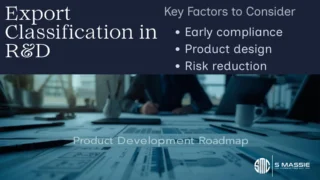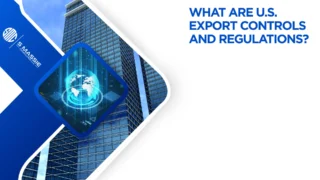These classifications are the cornerstone of international trade. They determine how goods and technologies are categorized for export, impacting everything from tariffs and duties to licensing requirements.
Recently, the US Census Bureau released a list of obsolete HTSUS (Harmonized Tariff Schedule of the United States) codes for imports and Schedule B codes for exports. These updates signify changes in trade classifications, reflecting shifts in products or adjustments in international trade policies.
Obsolete codes can pose challenges for importers and exporters. Using outdated codes might result in misclassifying goods, leading to customs delays or compliance issues. Remaining informed about these updates from authoritative sources like the US Census Bureau is essential for businesses. Regularly checking and updating classification codes is a proactive measure to ensure accurate categorization and compliance with regulations.
Beyond these updates, the importance of annual adjustments in export classifications cannot be overstated. HS codes, ITAR (International Traffic in Arms Regulations), and EAR (Export Administration Regulations) classifications evolve each year to keep pace with technological advancements. As technology progresses, products become more complex, necessitating nuanced classification to ensure accurate categorization for international trade.
Moreover, EAR and ITAR classifications are subject to changes driven by national security concerns, economic interests, and foreign policy shifts. The movement of certain items from ITAR to EAR or vice versa significantly impacts industries, influencing the ease or restrictions on exporting specific goods.
Consider the semiconductor industry’s recent events, where export controls were modified due to geopolitical tensions. These changes influenced the classifications of semiconductor-related technologies, showcasing the immediate impact of geopolitical factors on export regulations.
Additionally, updating export classifications aids in accurate statistical tracking. Governments rely on precise data to understand trade patterns, identify trends, and formulate effective policies. Regular updates ensure that statistical data remains relevant and reflects the current trade landscape accurately.
As we embrace this new year, businesses involved in international trade must prioritize staying abreast of these updates and recently released obsolete codes. While the US Census Bureau updates HTS and Schedule B Codes each January, the EAR and ITAR are more responsive and adjustments can happen at any time throughout the year. Adapting to these changes ensures compliance, reduces risks, and maintains a competitive edge in the ever-evolving global marketplace.
Keeping a finger on the pulse of export classifications isn’t just a procedural task; it’s a strategic imperative for successful international trade operations.
External Links:
Links to US Census Bureau Updates
Schedule B (Export): https://www.census.gov/foreign-trade/schedules/b/2024/jan_obsoletetonew.pdf
HTS (Import): https://www.census.gov/foreign-trade/aes/documentlibrary/concordance/hts-not-for-aes.txt
Contact us to schedule a consultation or compliance review.






